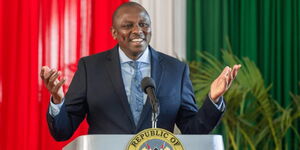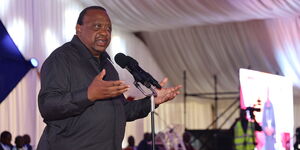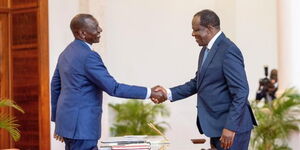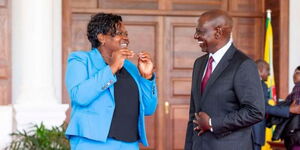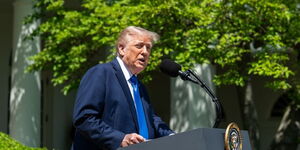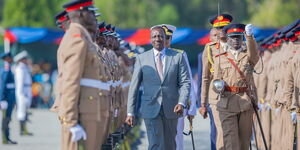Deputy President William Ruto briefly served as Kenya's president on an acting capacity between October 6 and October 9, 2014, while President Uhuru Kenyatta attended his trial at the International Criminal Court, Hague.
His duties involved chairing the National Security Council, Cabinet and its committees, as well as directing and coordinating the functions of government ministries and departments.
An article by the Daily Nation on October 7, 2014, reported that Ruto received routine intelligence briefs from National Intelligence Service Director General Phillip Kameru, according to the diary prepared by Head of Public Service Joseph Kinyua.
He met Grete Fareno, the executive director of the United Nations Office for Projects Services, and later Joseph ole Lenku, who was the Interior Cabinet Secretary at the time.
On the same day, Ruto sent the then Transport and Infrastructure Cabinet Secretary Michael Kamau to an East African Community Summit that was held in Kampala, Uganda. The summit was attended by President Paul Kagame of Rwanda and Uganda’s Yoweri Museveni.
In the course of the day, Ruto met officials from the United Nations Educational Scientific and Cultural Organization, led by Evergiline Njoka. The officials briefed him on preparations to celebrate 50 years of UNESCO in Kenya.
On October 8, 2014, Ruto began his day at Crowne Plaza, where he was the chief guest at a conference organised by the Ministry of Industrialisation.
Though on acting capacity, Ruto chaired a meeting with the Council of Governors, at the time led by Turkana Governor Josphat Nanok and the Kenya National Union of Nurses in an attempt to end a strike by the nurses.
An agreement reached between Ruto and the nurses was revisited on November 5, 2014, upon the return of President Kenyatta and an agreement was reached to call-off the five-month strike.
When Uhuru officially handed over power to Ruto at the Parliament on October 6, he explained, "To protect the sovereignty of the Republic of Kenya, I will sign a legal notice appointing Hon William Ruto as acting president while I attend the status conference.”
After the president's address, DP Ruto’s security was immediately enhanced. He was assigned an aide-de-camp and an escort commander was tasked to head his detail.
When he left Parliament, Ruto was in the presidential limousine and was accorded the presidential escort.
Uhuru, on the other hand, left in a private car, without his presidential standard and the national flag.
DP Ruto's duty station was moved across the road from Harambee Annex to Harambee House, where he was briefed of what his new role would entail.


